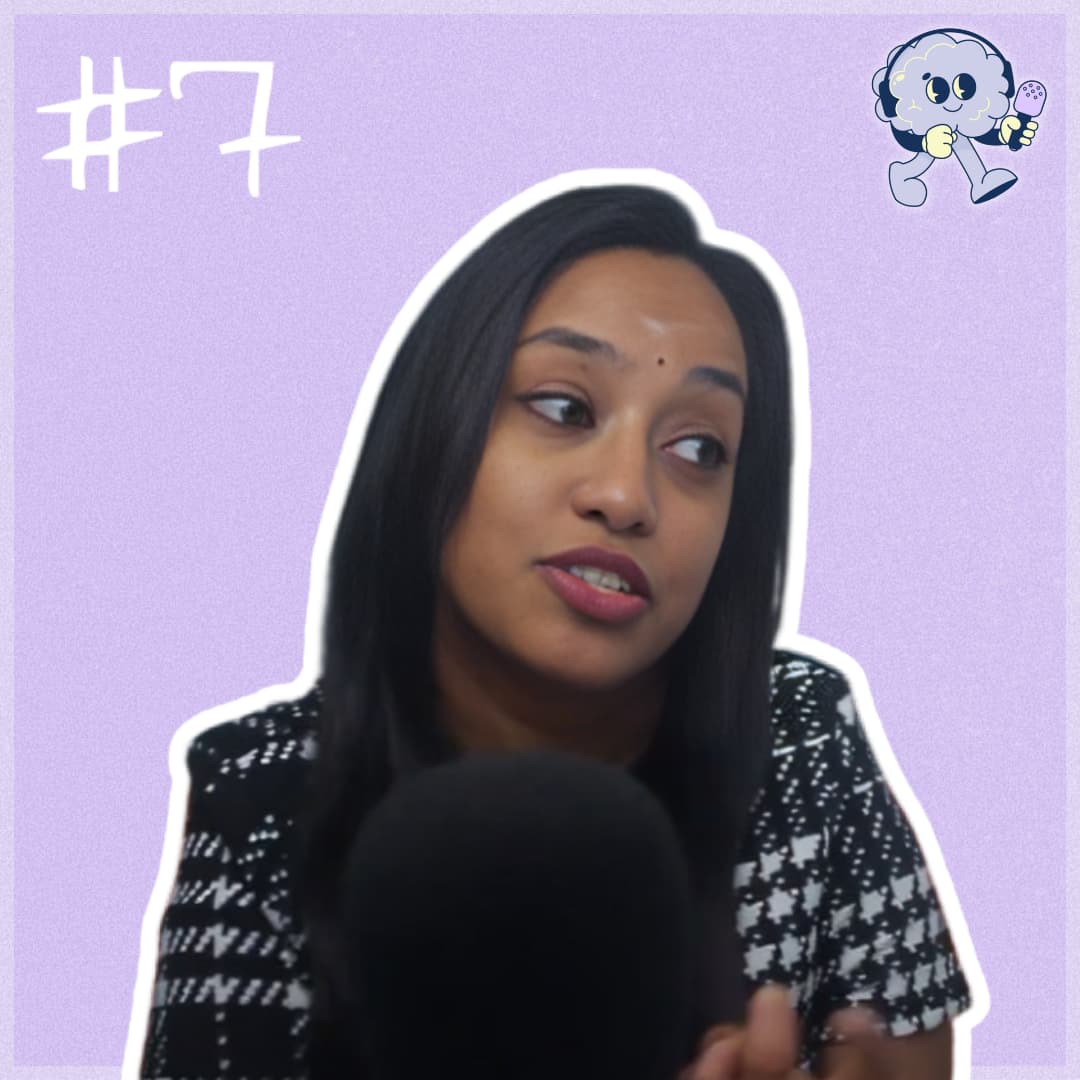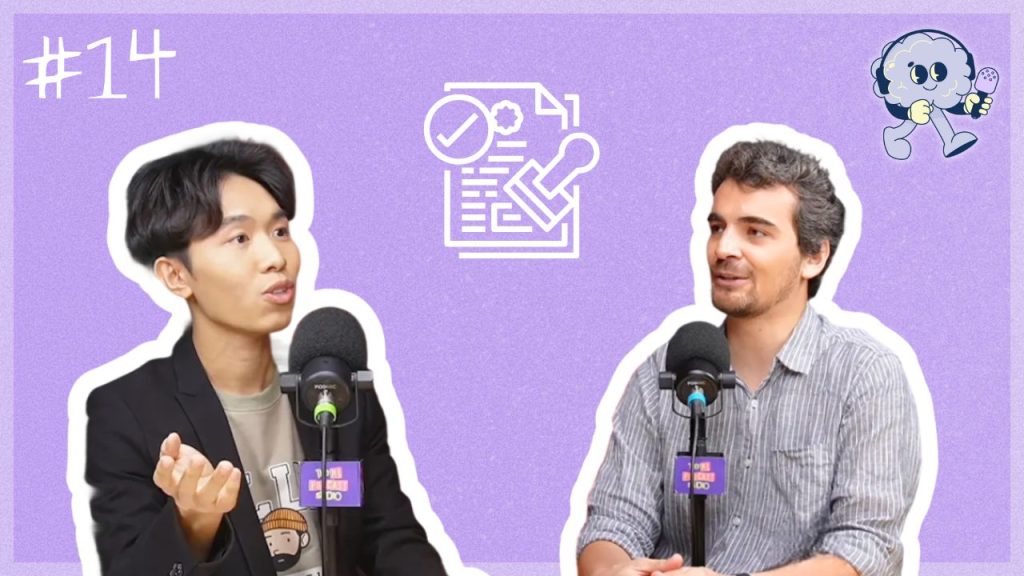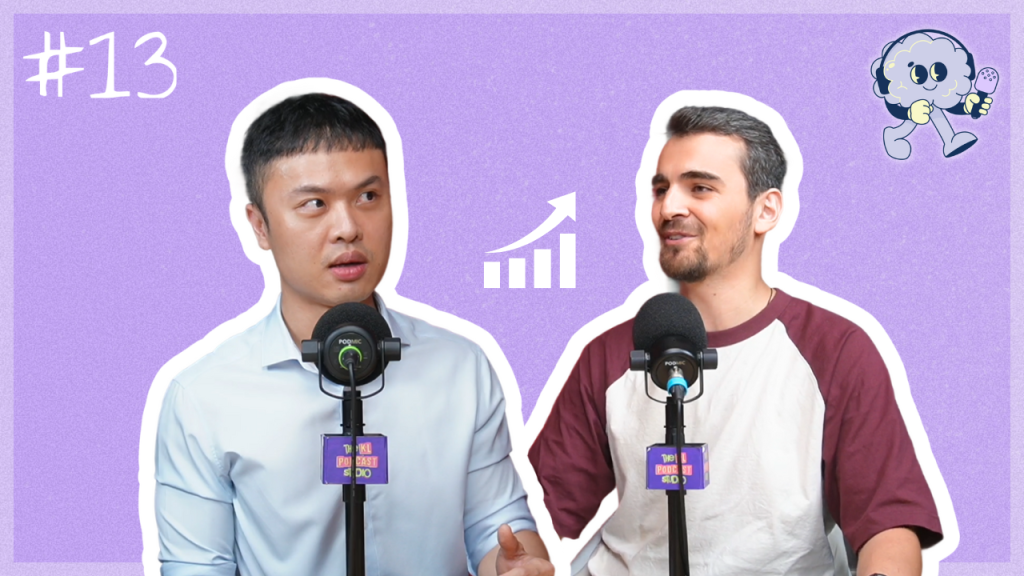Introduction
With 1.04 billion monthly active users worldwide, TikTok has become one of the most popular social media platforms for news, entertainment, and even mental health awareness. Storytime videos, vlogs, and content related to emotional and mental health are especially popular and well-received. While this content can be incredibly helpful, it also raises concerns due to its significant influence. This brings us to a crucial question: Can we trust the mental health advice we encounter on TikTok?
In this episode of the Let’s Talk About It Podcast, we explore this topic with Rajeshwary Chandra Kandan, fondly known as Jesh, a Licensed & Registered Counselor and Mental Health First Aider.
Guest Introduction
Rajeshwary Chandra Kandan, or Jesh, is a licensed and registered counselor and a Mental Health First Aider. With extensive experience in the mental health field, Jesh provides valuable insights into the benefits and potential pitfalls of consuming mental health content on social media platforms like TikTok.
Key Discussion Points
- User’s Mental Health:
- Familiarity with TikTok: Jesh shares her experience and thoughts on TikTok and its impact on mental health discussions.
- Relatability and Validation: We discuss the dual-edged nature of finding relatable content and how it can both support and mislead viewers.
- Content Creator’s Responsibility:
- Professional Advice on TikTok: The conversation touches on the trend of professionals using TikTok for education and advocacy, and whether users should still be cautious despite the presence of verified accounts.
- Creators’ Guidelines: Jesh provides advice for content creators who share mental health stories and the importance of avoiding harmful or misleading advice.
- Side Effects of Trends:
- Algorithm Impact: We delve into the potential consequences of engaging with certain types of content and how TikTok’s algorithm might affect users’ mental health.
- Self-Diagnosis Concerns: Jesh talks about the dangers of self-diagnosis and the importance of seeking professional help.
- Managing Triggers: Practical tips from Jesh on what to do if a TikTok video triggers a traumatic response.
- Cyberbullying and Negativity: The impact of online trolling and negative trends, and Jesh’s thoughts on whether to stay silent or speak out against these harmful behaviors.
Conclusion
This episode offers a comprehensive look at the nuances of mental health advice on TikTok. Jesh provides some practical guidance for both users and creators, emphasizing the importance of caution, support, and responsible content sharing. Tune in to gain a deeper understanding of how to navigate mental health trends on social media safely and effectively.
Listen to the Full Episode
The Let’s Talk About It Podcast by SafeTalk is your go-to mental health podcast, launched in Malaysia in 2024. We dive into topics that aren’t often discussed, featuring conversations with licensed counselors, therapists, psychologists, and individuals with lived experiences. Our goal is to explore and answer your most pressing mental health questions. Tune in on YouTube, Spotify, and Apple Podcasts, and follow us on social media for the latest updates!
Listen now on our YouTube channel:
You can also listen to it on Spotify:
Or even Apple Podcast!:
Show Notes
0:00 – Introduction
In this episode, we welcome Rajeshwary Chandran to explore the nuanced impact of social media on mental health. We delve into how social media platforms, particularly TikTok, are shaping perceptions and the challenges of navigating mental health content online.
2:00 – The Impact of Social Media on Mental Health
Rajeshwary discusses the dual-edged nature of social media. On one hand, it provides valuable mental health resources and creates communities. On the other hand, it can also contribute to misinformation and emotional distress. The conversation highlights how social media’s pervasive influence is reshaping our understanding and approach to mental health.
6:00 – Trends and Viral Content
The discussion moves to the impact of viral trends and content on mental health. Rajeshwary explains how viral challenges and memes can spread awareness but also perpetuate harmful stereotypes or trivialize serious issues. The conversation addresses the responsibility of content creators and consumers in navigating these trends.
10:00 – The Challenges of Content Consumption
Rajeshwary offers insights into the difficulties of managing content consumption. The conversation focuses on the emotional toll of constantly encountering distressing or triggering content. Strategies for mitigating these effects, such as setting boundaries and practicing digital detox, are discussed in detail.
15:00 – Strategies for Managing Social Media Exposure
Practical advice is provided for handling overwhelming content. Rajeshwary suggests techniques for self-care and how to stay informed without compromising mental health. Tips include curating feeds, using platform tools to manage content visibility, and engaging in mindful consumption.
20:00 – Navigating Guilt Around News Consumption
The episode explores the guilt many feel about not engaging with distressing news. Rajeshwary shares strategies for addressing this guilt, emphasizing that it’s okay to prioritize mental health and seek information in ways that don’t exacerbate emotional strain.
25:00 – Cyberbullying and Harmful Trends
Cyberbullying and harmful online trends are examined, with Rajeshwary discussing the impact of online mockery and insensitivity on mental health. The conversation highlights the need for increased awareness and action against such harmful behaviors.
30:00 – Responding to Online Harassment
The episode addresses the dilemma of whether to stay silent or respond to online harassment. Rajeshwary discusses the importance of self-care and suggests that choosing to remain silent can be a form of self-preservation. Alternatively, standing up against harassment can foster community support and raise awareness.
35:00 – The Role of Community Support
Rajeshwary highlights the role of community support in combating harmful content. The discussion covers how advocacy and speaking out can build solidarity and support among individuals facing similar issues. Balancing personal well-being with advocacy efforts is emphasized.
40:00 – Improving Social Media Platforms
The conversation turns to potential improvements for social media platforms. Rajeshwary suggests enhancements in content moderation and the implementation of better support resources for mental health. The focus is on creating safer online spaces for all users.
45:00 – The Role of Celebrities and Public Figures
Rajeshwary reflects on how celebrities’ mental health struggles influence public perceptions. The episode explores the gap between the public image of celebrities and their personal challenges, shedding light on the realities of mental health, even among those who appear to have it all.
50:00 – Future Directions for Social Media and Mental Health
Looking ahead, Rajeshwary discusses the future of social media in relation to mental health. The conversation includes suggestions for improving platform policies and support systems to better address sensitive topics and protect young users.
53:00 – Conclusion
A summary of the key points discussed throughout the episode. Rajeshwary and the host recap the main takeaways, reinforcing the importance of mindful social media use and mental health awareness.
54:00 – Call to Action
Listeners are encouraged to subscribe to the podcast, follow on social media, and stay tuned for future episodes. Links to the podcast on various platforms and social media accounts are provided.





